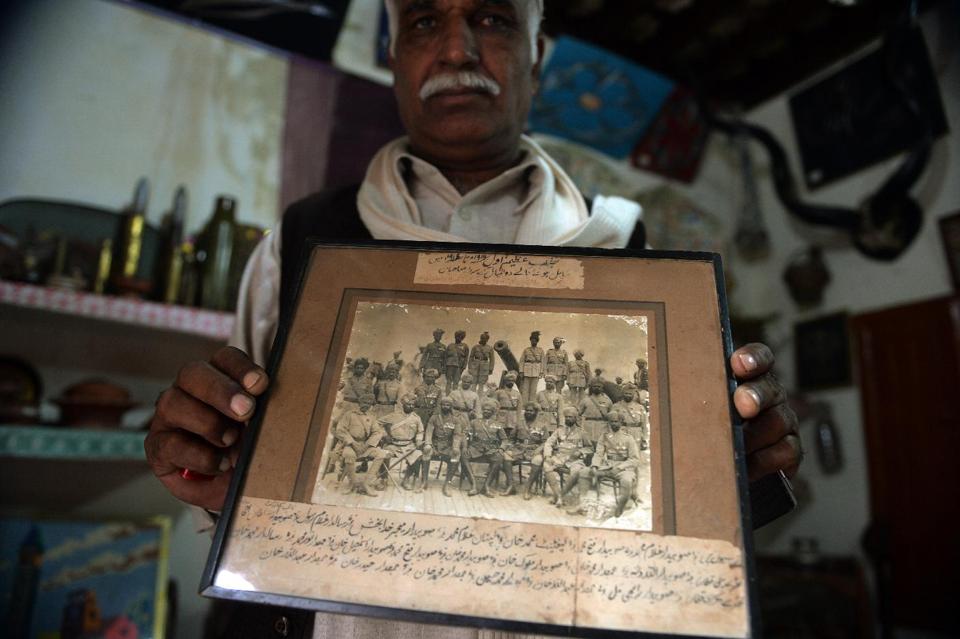Down a broken road winding through a corner of Pakistan’s Punjab province lies a silent graveyard, the resting place of hundreds of soldiers who fought for Britain in two world wars.
Nestled in the rocky hills of Punjab’s salt ranges, blasted by heat in the summer, the village of Dulmial is a far cry from the freezing mud of the Flanders trenches.
But the village, around 150 kilometres (90 miles) from Islamabad, gave 460 men to fight in the 1914-18 conflict — more than any other single village in what was then British India.
By the end of World War I, nearly 1.3 million men from across the Indian subcontinent had volunteered for service, with 74,000 giving their lives in the fight against Germany and its allies.
As part of commemorations of the 100th anniversary of the start of World War I, the British High Commission in Islamabad unveiled a plaque on Monday honouring Pakistani recipients of the Victoria Cross.
Three soldiers from what is now Pakistan were awarded the VC, Britain’s highest military honour, for extreme bravery under fire.
Dulmial’s contribution to Britain’s war effort is recognised with a historic 12-pounder artillery gun, made in Scotland, installed on a marble platform in 1925 as a memorial and still kept an immaculate, gleaming black.
A few metres away, the primary school building has another plaque placed on a monument.
– Proud history –
Dulmial’s military tradition continues to this day — the district is still a fertile recruiting ground for Pakistan’s armed forces.
The WWI centenary has sparked interest in the village’s history and the sacrifice made for the colonial rulers, who governed the subcontinent until it was divided into India and Pakistan at independence in 1947.
A one-room museum in the former home of late WWI veteran Fateh Muhammad Malik houses mementoes of the village’s proud heritage — a captured Italian battle flag, old military equipment and photos of soldiers.
Troops from the village were also honoured for bravery fighting in France in 1915, he said.
– ‘We ate roots’ –
Haji Malik Muhammad Khan was one of those men. Now 91 years of age, the old soldier is still fit enough to take a daily march across the village.
Khan’s service with a Punjab infantry regiment fighting the feared Japanese took him to some of the toughest theatres of the war in the east — Burma (now called Myanmar), Indonesia and Malaya (now Malaysia).
Almost 70 years after the end of WWII, Khan wants no one else to go through the horrors he witnessed as a young man.
But for Malik, wars have put their village on the map, making it stand out from the thousands of others that dot Punjab.
His mission now is to build a monument to accompany the gun, commemorating soldiers from the village who fought for Pakistan, as well as the British Empire.

COMMENTS
Please let us know if you're having issues with commenting.